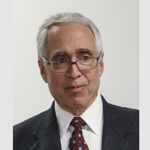Back for the Future
![]()
y friends were stunned when I called last summer to say I was moving back to Washington. It hardly seemed like a sane decision. Clinton was about to admit an "inappropriate relationship" with Monica Lewinsky after seven months of stonewalling, Ken Starr was drafting his X-rated report on impeachable offenses, and Newt Gingrich was promising to make the President's sex life the core issue of the 1998 congressional campaigns.
What a difference a few months make. Gingrich and Starr are almost gone, and Clinton is fading fast. Washington actually seems to be getting back to work today. Both parties are lining up for what looks to be a repeat of the 1976 election when Jimmy Carter promised a government as good as the people. Call it wishful thinking, but I believe that the next five years are going to mark a renaissance in American public service, and I want to be part of it.
I wish I could claim credit for the change--you know, Paul Light decides to move back to Washington, skies clear. But the fact is that ordinary Americans are leading the change. They desperately want to be proud of their democracy again, and seem ready for the kind of political renaissance that comes every half century or so. The question is whether the public service will be part of the renewal.
The public service clearly deserves a renaissance, particularly among young Americans. Unless the nation starts inviting more young Americans to serve, its governments simply will not be able to do their jobs in the coming decades, be it meeting the year 2000 crisis, monitoring domestic terrorism, assuring air worthiness, teaching our children or promoting a competitive economy. This is no time for government to settle for mediocrity.
The past 20 years of downsizing and bureaucrat bashing have taken a toll on young Americans. Even if they believed that government was interested in hiring them, they would still be reluctant to serve. They have come to believe that government is a vast wasteland of dead-end jobs and mind-numbing bureaucracy. Young Americans have no more interest in spending a career buried 40 layers down the hierarchy than they do in listening to Barry Manilow sing the blues.
A quarter of the top U.S. public administration graduate students are still interested in a federal career, which speaks more to their commitment to the national good than it does to anything agencies are doing to attract young people. Agencies could make public service more inviting by providing competitive pay and debt relief. Harvard University's John F. Kennedy School of Government gives every graduate who accepts a presidential management internship $10,000 for debt relief. If only government agencies would match the offer.
The irony is that young Americans are the most active citizens in recent history. They are volunteering at record levels and are the most likely of all age groups to believe that one person can make a difference by helping others. They are ready to be called.
Unfortunately, young Americans have come to believe the worst about government and politics. They are the most likely of any age group to doubt the moral and ethical integrity of their elected leaders; the least likely to believe that voting matters in what government does; and the most likely to say that politicians will say and do anything to get elected, then do what they please.
Raised on scandal and corruption, young Americans want nothing to do with politics, including public service. They may be willing to ladle soup in homeless shelters from morning to night, mentor children for hours on end and march mile after mile for AIDS research, but they won't write letters to Congress, lobby school boards for more books, work for political campaigns or, it seems, become political science majors and pursue public service careers. Young Americans want to see the results of their voluntary labor, and they see politics as a waste of time.
That is why political reform is critical to restoring the public service. Take campaign finance reform as an example. Absent action to close the loophole that allows millions in unregulated money to flow into national campaigns, it is difficult to imagine how young Americans could be proud to call themselves public servants. Survey research suggests that campaign finance reform is just as important to restoring the public service as entry-level pay and debt relief. If the National Partnership for Reinventing Government really wants to improve customer satisfaction in government, it ought to put as much emphasis on campaign finance reform as it does on information technology, reinvention laboratories and quality. So should everyone who worries about getting young people to take a risk on public service.
Paul C. Light, Douglas Dillon senior fellow and founding director of the Center for the Public Service at the Brookings Institution, is the author of The True Size of Government, which will be published in the spring.
NEXT STORY: Look Both Ways Before Crossing







